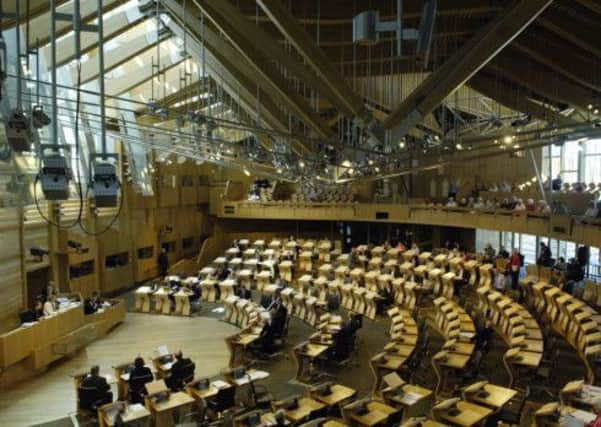MSPs to probe research into effects of bedroom tax


Holyrood’s Welfare Reform Committee commissioned research on the so-called bedroom tax which has seen housing benefit cuts for some people in housing association and council homes.
Housing economics professor Kenneth Gibb, from Glasgow University, concluded that the factors that keep people in their home often outweigh the impact of the policy which was introduced earlier this year by the UK Government.
Advertisement
Hide AdAdvertisement
Hide AdThe professor, who will answer questions from MSPs today, also found that at least a third of one-bedroom properties in the social accommodation sector are needed to house homeless people and therefore could not be given to those having their benefits cut if they are considered to have extra rooms.
A number of people are building up rent arrears which could be worsened when further welfare cuts are introduced, the research also says.
Committee convener Michael McMahon said: “This research confirms what we heard in our committee meetings, that disabled people don’t want to leave homes specifically adapted to best suit their needs and that separated families want space to come together as a family overnight.
“It is not a case of ‘spare rooms’ but of ‘space to live’ so homes have the capacity for either the facilities or loved ones that people need to make life worth living.
“No policy should put such basic rights at risk. The UK Government must answer how it intends to square that circle for people, often the most vulnerable people in our society.
“All of the evidence we hear and is highlighted in this research points to people trying as hard as they can to make sure they can stay in their homes and have the support the communities they are part of.”
Prof Gibb’s study for the committee outlines how some tenants are responding to the loss of housing benefit by paying the additional amount themselves, by seeking extra cash through discretionary housing payments, by trying to get off benefits and by terminating their tenancy and looking to other housing providers and solutions.
Jamie Hepburn, the committee’s deputy convener, said: “Our research has highlighted that the bedroom tax is forcing people that already have homes to pursue a limited number of one-bedroom properties, the same one-bedroom properties needed for housing homeless applicants and other priority groups.
Advertisement
Hide AdAdvertisement
Hide Ad“When you consider that more than a third of vacancies can be required for housing the homeless, it is no wonder that one council reckoned it would take 19 years to rehouse everyone affected by the bedroom tax.
“I am also deeply concerned that this situation seems to be pushing many of our poorest people into rent arrears. One council reports that two-thirds of those affected by the bedroom tax are now in arrears.
“Whilst there is some comfort in seeing that discretionary housing payments are doing a lot to solve this problem, there is the worry that the next wave of welfare reform - universal credit, personal independence payments, 1% benefit increases and so on - will reduce incomes and make matters even worse.”
READ MORE